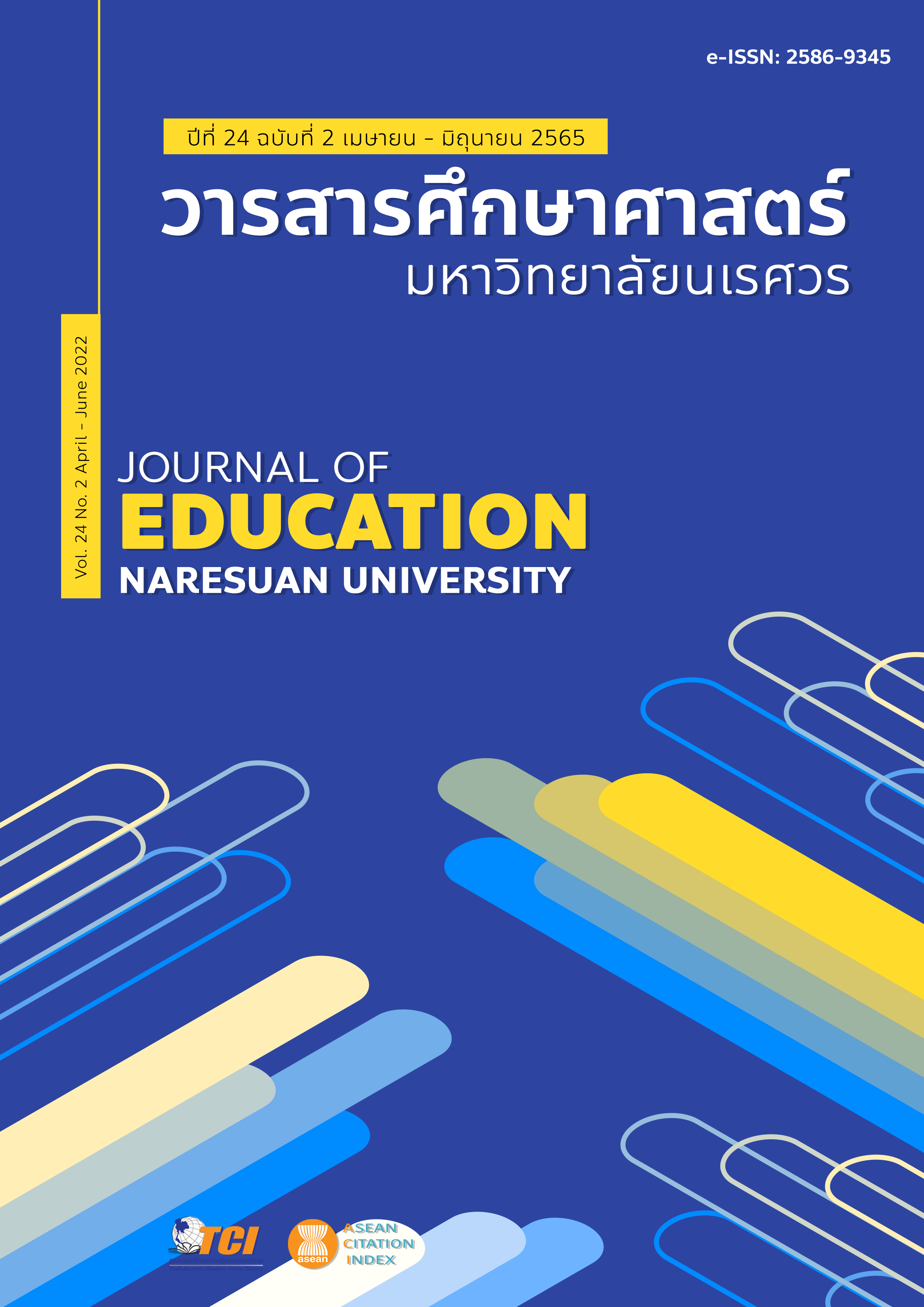VALIDATION OF THE CAREER ADAPT-ABILITIES SCALE- SHORT FORM FOR PRESERVICE TEACHERS การตรวจสอบคุณภาพของแบบวัดความสามารถในการปรับตัวทางด้านอาชีพฉบับสั้น สำหรับนิสิตครู
Main Article Content
Abstract
The purposes of the study were to investigate the psychometric properties of the Career Adapt-Abilities Scale-short form (CAAS-SF) and to examine the measurement invariance of the career adapt abilities model across gender. The sample consisted of 330 undergraduate students at the Faculty of Education, Chulalongkorn University. The instrument was the Career Adapt-Abilities Scale-short form. Internal consistency reliability, item discrimination, and criterion-related validity were calculated using SPSS. Confirmatory factor analysis and multi-group structural equation modeling were analyzed using LISREL 8.72. The research findings revealed:
1. The Cronbach’s alpha coefficient of the full scale was .90 and the reliability of the subscales were ranged from .74 to .81.
2. The item discrimination values ranged from .55 to .69.
3. The result from criterion-related validity found the moderate level of correlation with Student Career Construction Inventory with statistical significance at .01 (r= .66).
4. Confirmatory factor analysis showed that the career adapt abilities model fit the empirical data very well: = 57.79, df = 45, p=0.095, GFI=0.972, AGFI=0.951, RMR=0.016, and RMSEA=0.029. All factor loadings were statistically significant at .01.
5.The measurement invariance of the career adapt abilities model showed that there was configural and parameter invariance between male students and female students.
Article Details

This work is licensed under a Creative Commons Attribution-NonCommercial-NoDerivatives 4.0 International License.
The owner of the article does not copy or violate any of its copyright. If any copyright infringement occurs or prosecution, in any case, the Editorial Board is not involved in all the rights to the owner of the article to be performed.
References
Bocciardi, F., Caputo, A., Fregonese, C., Langher, V., & Sartori, R. (2017). Career adaptability as a strategic competence for career development. European Journal of Training and Development, 41(1), 67–82.
Brown, D. (2002). Career choice and development. San Francisco, CA: John Wiley & Sons.
Byrne, B. M. (2010). Multivariate applications series. Structural equation modeling with AMOS: Basic concepts, applications, and programming (2nd ed.). New York, NY, US: Routledge/Taylor & Francis Group.
Faculty of Education. (2014). Bachelor of Education Program (5-year program) New curriculum B.E. 2557. Retrieved from http://portal.edu.chula.ac.th/academic/assets//curriculum/bachelor/2%20page%2023-43.pdf [in Thai]
Ginevra, M. C., Magnano, P., Lodi, E., Annovazzi, C., Camussi, E., Patrizi, P., & Nota, L. (2018). The role of career adaptability and courage on life satisfaction in adolescence. Journal of adolescence, 62, 1-8.
Hou, Z. J., Leung, S. A., Li, X., Li, X., & Xu, H. (2012). Career adapt-abilities scale—China form: Construction and initial validation. Journal of Vocational Behavior, 80(3), 686-691.
Hu, L. t., & Bentler, P. M. (1999). Cutoff criteria for fit indexes in covariance structure analysis: Conventional criteria versus new alternatives. Structural Equation Modeling, 6(1), 1-55.
Johnston, C. S., Broonen, J. P., Stauffer, S. D., Hamtiaux, A., Pouyaud, J., Zecca, G., Houssemand, C., & Rossier, J. (2013). Validation of an adapted French form of the Career Adapt-Abilities Scale in four French-speaking countries. Journal of Vocational Behavior, 83, 1–10.
Johnston, C. S., Luciano, E. C., Maggiori, C., Ruch, W., & Rossier, J. (2013). Validation of the German version of the Career Adapt-Abilities Scale and its relation to orientations to happiness and work stress. Journal of Vocational Behavior, 83, 295–304.
Kanjanawasee, S. (2013). Classical test theory (7th ed.). Bangkok: Chulalongkorn University Press. [in Thai]
Maggiori, C., Rossier, J., & Savickas, M. L. (2017). Career Adapt-Abilities Scale–Short Form (CAAS-SF) Construction and Validation. Journal of career assessment, 25(2), 312-325.
McKenna, B., Zacher, H., Ardabili, F. S., & Mohebbi, H. (2016). Career Adapt-Abilities Scale—Iran form: Psychometric properties and relationships with career satisfaction and entrepreneurial intentions. Journal of Vocational Behavior, 93, 81-91.
Olugbade, O. A. (2016). The career adapt-abilities scale-Nigeria form: Psychometric properties and construct validity. Journal of Vocational Behavior, 95-96, 111-114. https://doi.org/10.1016/j.jvb.2016.08.006
Rossier, J., Zecca, G., Stauffer, S. D., Maggiori, C., & Dauwalder, J. P. (2012). Career Adapt-Abilities Scale in a French-speaking Swiss sample: Psychometric properties and relationships to personality and work engagement. Journal of Vocational Behavior, 80, 734–743.
Savickas, M. L. (2005). The theory and practice of career construction. In S. D. Brown & R. W. Lent (Eds.), Career development and counseling: Putting theory and research to work (pp. 42–70). John Wiley & Sons.
Savickas, M. L., Porfeli, E. J., Hilton, T. L., & Savickas, S. (2018). The student career construction inventory. Journal of Vocational Behavior, 106, 138-152.
Savickas, M. L., & Porfeli, E. J. (2012). Career Adapt-Abilities Scale: Construction, reliability, and measurement equivalence across 13 countries. Journal of Vocational Behavior, 80, 661–673.
Tien, H. L. S., Wang, Y. C., Chu, H. C., & Huang, T. L. (2012). Career Adapt-Abilities Scale—Taiwan form: Psychometric properties and construct validity. Journal of Vocational Behavior, 80(3), 744-747.
Tolentino, L. R., Garcia, P. R. J. M., Lu, V. N., Restubog, S. L. D., Bordia, P., & Plewa, C. (2014). Career adaptation: The relation of adaptability to goal orientation, proactive personality, and career optimism. Journal of Vocational Behavior, 84, 39-48.
Zacher, H., Ambiel, R. A., & Noronha, A. P. P. (2015). Career adaptability and career entrenchment. Journal of Vocational Behavior, 88, 164-173.


